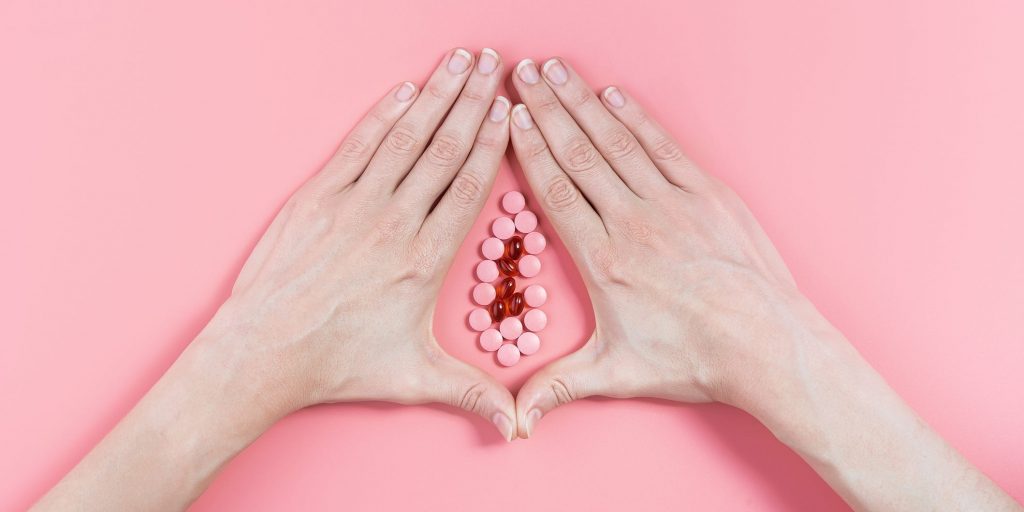- Vaginal boils can be caused by ingrown hairs, injuries, or wearing underwear that's too small.
- They usually are painful, have a pus filled tip, and eventually rupture and drain pus.
- You should see a doctor if your boil isn't improving after three days or you have a fever.
If you have a painful bump in your pubic regions, it could be a boil. Boils usually:
- Are painful
- Have a pus filled tip
- Can be small or up to two inches wide
- Are red or purple
- Eventually rupture on their own, resulting in pus drainage
A boil will typically show up on the pubic mound or the outer labia on the vulva, says Kecia Gaither, MD, MPH, board-certified OB-GYN and Director of Perinatal Services at NYC Health + Hospitals/Lincoln. This is because they're most common in areas that grow hair.
Boils on the vulva can start out small but grow to become more swollen and filled with pus as the infection goes on, causing a lot of discomfort.
Here are the causes of vagina boils as well as how to treat and prevent them.
The causes of vaginal boils
Most commonly, boils are caused by the bacterial infection staphylococcus, aka staph, says Gaither.
Your skin contains a certain amount of staph bacteria naturally, which is harmless. The issue arises if it gets into an open oil gland or hair follicle, which can cause an infection, resulting in an inflamed pus-filled boil, says Gaither.
There are various risk factors that can contribute to the formation of a boil due to staph, including:
- Ingrown hairs from removing your pubic hair (shaving or waxing)
- Wearing underwear or clothing that's too tight
- Not cleaning the genital area enough
- Having a weakened immune system
- Trauma to the skin including injuries, bug bites, or acne
- Having skin-to-skin contact with someone who had a boil
- Being obese
Treatment for vaginal boils
The course of treatment depends on the severity of your boil, says Mary Jane Minkin, MD, board-certified OB-GYN at Yale Medicine.
Some home remedies for treating a boil include:
- Soaking in a bath or using warm compresses to try to get the boil to drain
- Keeping the vaginal area clean
- Use an antibacterial wash to kill bacteria on the skin's surface
- Avoiding tight fitting underwear or clothing
- Taking over-the-counter pain meds, such as Advil or Tylenol
- Avoiding picking at the boil, as this can potentially worsen infection and pain.
It can take one to three weeks for a boil to completely heal, but Minkin says you will usually see some improvement in two to three days, with the boil becoming less painful and swollen.
If home remedies don't do the trick, Minkin says antibiotics may be prescribed to clear up the infection. In other cases, your doctor might make a small cut to drain the boil and drain the pus out.
Minkin says that you should see a doctor as soon as possible if:
- Your boil isn't improving at all after three days
- The boil is getting much bigger and redder
- You have a fever
These could be the signs of a worsening infection, says Minkin. In very rare cases, if the boil is left untreated, the bacteria from it can travel through your blood and cause a serious infection called sepsis.
Since boils are contagious, it's important to take precautions to prevent spreading the bacteria to others or to other parts of your body. Minkin suggests taking these measures:
- Avoiding any sexual contact while the boil is present
- Avoiding sharing personal items such as towels
- Avoiding touching the boil and then touching another part of your, or someone else's, body
Preventing vaginal boils
There isn't a surefire way to prevent boils, particularly if you are immunocompromised and at higher risk for infections.
However, whether or not you are immunocompromised, you can reduce your risk and help prevent boils with some of the following lifestyle changes:
- Keeping your genital area clean to prevent bacteria buildup
- Changing underwear that's sweaty or dirty
- Washing your hands before touching your genitals to prevent introducing new bacteria
- Avoiding contact or sharing items with someone who has a boil
- Losing weight if you are obese and if your doctor advises it
You may also need to change your hair removal habits to prevent ingrown hairs. This can include using sharp razors and shaving cream, exfoliating before shaving, and shaving with the direction of hair growth.
Taking these steps won't guarantee that you'll never have a vagina boil again, but it can certainly help reduce your risk.
Insider's takeaway
A vaginal boil is typically caused by bacteria that makes its way into your follicles, which may be a result of anything from poor hygiene to shaving to having contact with someone else with a boil.
While they can be uncomfortable and painful, boils will typically fully resolve on their own within three weeks or less. If your boil is not getting smaller despite your home-care, your doctor can prescribe antibiotics and/or drain the boil for relief.

